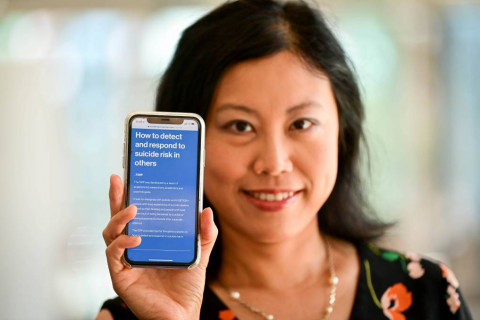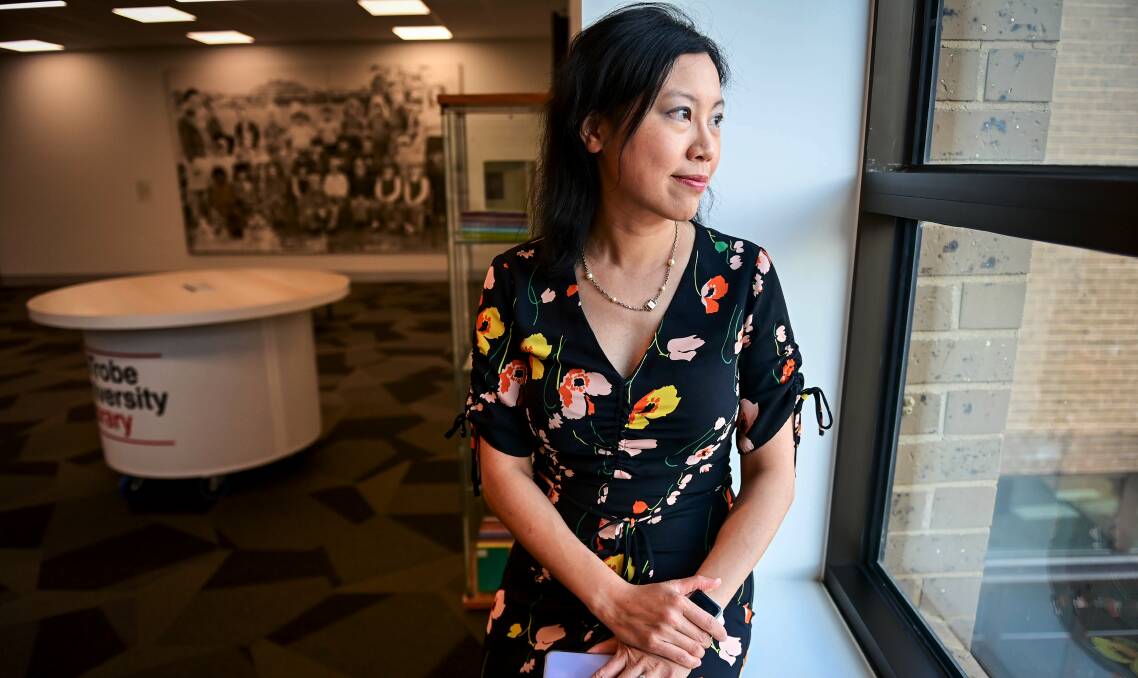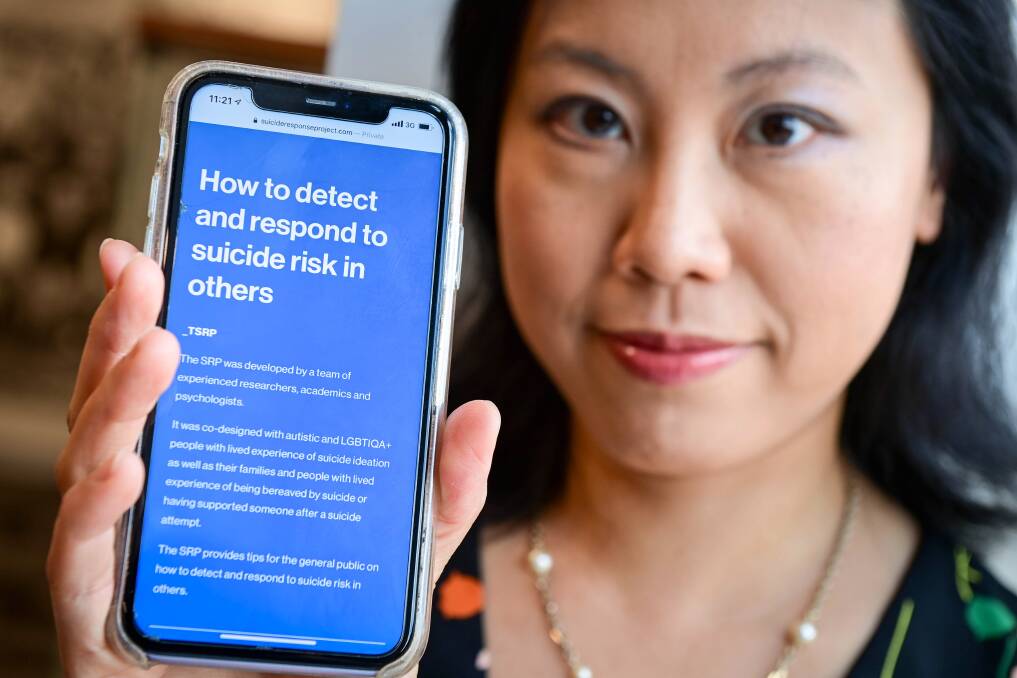
This story contains references to suicide. If you or someone you know needs support, contact Lifeline on 13 11 14.
La Trobe University researchers have developed a website to help people better identify and respond to suicide risk in their family members and friends.
Created as part of a world-first suicide prevention initiative, The Suicide Response Project is aimed at the general public, but includes information specifically to support people from the autistic and LGBTIQA+ communities.
Senior Research Fellow at La Trobe University's Olga Tennison Autism Research Centre Dr Darren Hedley said tailored resources were vital when it came to supporting people who were at increased risk of suicide.
"Both autistic and LGBTIQA+ communities have unique challenges when it comes to their mental health, often because of others not understanding them, or outright prejudice and bullying," he said.
"Very few health professionals genuinely understand these challenges, making knowledgeable and supportive family and friends even more critical in their lives.
"This website, underpinned by peer-reviewed research, will not only equip people to better identify the warning signs, it will help give them the confidence to intervene in a safe and supportive way."
The website was developed by a multi-disciplinary team of La Trobe experts and people with lived experience of the challenges faced by autistic and LGBTIQA+ communities.
Co-designers include Dr Karien Hill, Dr Carina Chan, Dr Josephine Barbaro, Mick Leahy, David Murphy and Dr Darren Hedley.
Dr Chan said the website was based on her study findings - together with Dr Hill - that a psychological theory known as Bystander Intervention Model was highly effective at motivating people to act when a friend or family member was at risk of suicide.
"We are trying to address an issue where people at times may interact with other people who are at risk and sometimes don't say something," she said.

Dr Carina Chan was one of the co-designers of The Suicide Response Project, a website to help people better identify and respond to suicide risk in their family members and friends. Picture: BRENDAN McCARTHY
"The educational material addresses the bystander effect where we address realising that something is wrong in a situation or claiming personal responsibility in dealing with things and making the decision to act and having the confidence to do something."
The website includes 12 free modules, animated videos and downloadable fact sheets - provides nuanced information focused on knowledge-building and effective intervention techniques.
Dr Chan said the resource also provided tips for the general public on how to detect and respond to suicide risk in others.
Dr Hedley said autistic people could differ in how they communicated, including when they were struggling with their mental health.
"Too often we hear stories of an autistic being suicidal - before making an attempt on their own life," he said.
The website also takes into account some of the challenges that LGBTIQA+ people can face, including discrimination and social isolation which contributes to higher rates of suicide in this population.
"If family, friends and health professionals could better understand these issues, many tragedies within both these communities could be avoided," Dr Hedley said.
Executive Officer of autism peer support organisation Different Journeys Mel Spencer said she had built up knowledge over the years on how to support her three children through their journeys with mental health challenges and autism.

Dr Carina Chan was one of the co-designers of The Suicide Response Project, a website to help people better identify and respond to suicide risk in their family members and friends. Picture: BRENDAN McCARTHY
"My children all have an autism diagnosis, as well as anxiety and obsessive-compulsive disorder," she said.
"On occasion they've felt completely out of control, behaving erratically, and endangering themselves and others.
"As their parent, having a deep understanding of how people with an autism diagnosis react when they're under stress compared to neurotypical people - and how to best respond to that - has helped enormously.
"I had to accumulate that information over the years through different websites and health professionals, and finding others in similar situations and learning together - so having access to this kind of specific information in one place is extremely valuable and welcome."
Dr Chan said people were also able to donate to their ongoing research.
She said with the public's support, they could continue to educate the community on how to detect and respond to suicide risk in others, through accessible and freely available educational materials delivered online.
The website can be found here.
If you or someone you know needs support, contact Lifeline on 13 11 14, Beyond Blue on 1300 22 46 36, or Kids Helpline on 1800 55 1800.
This story Suicide prevention website a vital aid for autistic and LGBTIQA+ communities first appeared on Bendigo Advertiser.